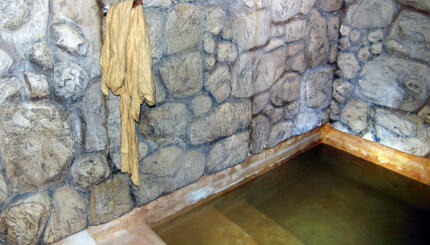Members of my Canadian synagogue are deeply engaged with Israel. Almost all, teens included, have visited the land at least once. They keep up with Israeli news. Some follow the liberal Ha’aretz; others the conservative Jerusalem Post. Most support local political organizations – ranging from the citizen diplomacy projects of Peace It Together to the staunch Israel advocacy of the Centre for Israel and Jewish Affairs. But when they get together, they don’t like to talk about Israeli politics.
Their Jewish learning is deep. Kids attend Jewish summer camp; adults graduate from the Melton Adult Jewish Studies Program; newcomers perfect their Hebrew; all love to discuss ideas and texts key to Jewish life. But when they get together, they don’t like to talk about Israeli politics.
The Shabbat before Purim is traditionally designated
Shabbat Zachor
, Shabbat of Remembering. With special Torah and Haftorah readings, we remember the evil of Amalek, who attack the weakened Israelites just after the Exodus. After the Israelites settle in the land and develop a strong army, Amalek continues to engage them. In one battle King Saul spares the life of the Amalekite king; the prophet Samuel disapproves. In Samuel’s view, a ruler’s first priority is national security. A king must guard this with absolute ruthless vigilance. In Saul’s view, a ruler can act with compassion towards those he sees as peers.
When we discuss this at our synagogue, someone invariably says, “Wow, that’s relevant to contemporary Israeli politics! These are two opposing Israeli views of how to manage relations with Palestine.” Everyone nods meaningfully, and then someone quickly changes the subject.
On Purim itself, we read Megillat Esther, story of the rise of a Jewish queen and her courtier cousin in the Persian Empire. The satirical story describes excesses of drunkenness, cosmetic use, sexual slavery, harmful legislation, long memos, ostentatious clothing, formal speech and — yes — killing. Many readers laugh their way through the excesses, until they read about the Jews killing outrageous numbers of potential enemies. Then their laughter pauses and they wonder why they find the Megillah funny.
When we discuss the Megillah at our synagogue, invariably someone says, “Wow, that’s relevant to contemporary Israeli politics! When Jews have political power within a corrupt international system, how should we wield it?” Everyone nods meaningfully, and then someone changes the subject.
A decade ago, our synagogue did discuss Israeli politics. Discussions were painful, conducted without manners, and in ways that compromised the safe, quiet space of Shabbat gatherings. Gradually, a consensus emerged: let’s acknowledge our differences, but not dwell on them.
As an American, I tried to respect this quiet Canadian solution, but found it odd. Much of our traditional liturgy expresses yearning for a homeland built on peace and justice. Thus synagogue should be the perfect venue for discussing Israel’s efforts. If we improve our skills in respectful dialogue, I thought, we will talk in a polite Canadian way. So I brought in facilitators from the Children of Abraham Compassionate Listening Project; offered training in public issues dialogue skills; hired speakers to teach about the history of Zionism. Everyone found the events meaningful, but did not use their skills to discuss Israeli politics.
Eight years of frustration finally yielded a breakthrough understanding. I’m not simply slow at adapting to Canadian politeness; I’ve been slow at understanding contemporary Jewish life. From my perspective as a rabbi, spiritual community sits at the centre of Jewish experience. Thus, if Israel is important to us, we should explore it during synagogue practice. But for many Jews, synagogue is not the centre of Jewish life. It is only one expression of their Jewish identity, and not the one they associate with Israel. As rabbi, I should listen carefully to their understanding of Jewish identity, learn from it, and celebrate its richness.
Photo by Dave Kauffman. Cross-posted to OnSophiaStreet.com
Purim
Pronounced: PUR-im, the Feast of Lots, Origin: Hebrew, a joyous holiday that recounts the saving of the Jews from a threatened massacre during the Persian period.
Shabbat
Pronounced: shuh-BAHT or shah-BAHT, Origin: Hebrew, the Sabbath, from sundown Friday to sundown Saturday.
Torah
Pronunced: TORE-uh, Origin: Hebrew, the Five Books of Moses.



